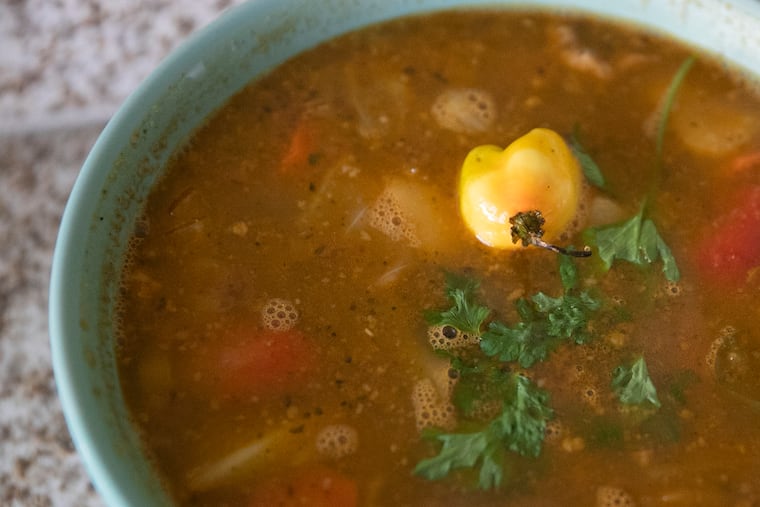Philly’s Haitian community will be praying, planning, and savoring independence on Jan. 1
The community plans to celebrate Haiti’s Independence Day with soup joumou, midnight services, and a discussion about how the diaspora can work to help the island.

There are many foods traditionally eaten on New Year’s Day because they are associated with good luck — black-eyed peas, collard greens, lentils, pork, and sauerkraut — but there’s one inextricably associated with freedom: Haiti’s soup joumou.
“They made the soup but our ancestors were not allowed to drink the soup,” the Rev. Josephys Dafils, founder of Haitian American United for Change, wrote in an email. “On January 1, 1804, the freed Black men and women drank the soup joumou, proudly. Haitians drink that soup every 1 January to celebrate our freedom from the French tyrants.”
In 2021, UNESCO inscribed soup joumou in its Representative List of the Intangible Cultural Heritage of Humanity:
That tradition lives on in the diaspora.
“If one goes to North Philly to the Northeast to West Philly to South Philly, all over Philadelphia where we have Haitians, one will smell the aroma of that soup joumou [on Jan. 1],” Dafils said.
» READ MORE: Soup joumou is a taste of freedom for Haitians celebrating independence across Philly
Gou, a Haitian restaurant that opened a year ago in the Olney section of Philly, will be serving soup joumou on Jan. 2 as part of its celebration of Haitian Independence Day.
But “independence soup” is hardly the only way Haitian Americans and Haitian immigrants will be celebrating.
According to Dafils, before the community has soup joumou accompanied by Haitian bread or cassava with peanut butter, a number of local churches were to hold services with special songs and prayers for Haiti on Dec. 31.
”In the Haitian Catholic community, we have a great devotion to Mary under the name of Our Lady of Perpetual Help,” said the Rev. Eugène R. Almonor, who is chaplain to the Haitian community at both St. Barbara Roman Catholic Church in Wynnefield and St. William in Lawncrest. “Because she is the patron of Haiti. So outside of Haiti, we keep her in our hearts.” Almonor will celebrate a Mass for the Haitian community on Jan. 1 at 1 p.m. at St. Barbara, at 5359 Lebanon Ave.
He said Jan. 1 is particularly significant to Haitians in Philadelphia because it is “a day of memory for Haitian people.”
“[Independence Day] is so important for all Haitians who are proud to be Haitians inside or outside Haiti,” he said by email. “It is a great opportunity to remain connected with our parents living in Haiti. We also try to encourage people from Haitian parents who are living in the USA to learn something about Haiti. Concretely, January 1 for a Haitian is like a Thanksgiving Day.”
“We remember our freedom from the French people,” Almonor added. “It is a day of gathering to celebrate life and continue to hope for a new Haiti without violence where all children of Haiti can live hand in hand, thinking on the motto of our flag: L’union fait la force, there is strength in unity.”
» READ MORE: A Philly church and refuge for the Haitian community turns 30
Haiti, already a country grappling with high rates of poverty, has in recent years been hit by a series of devastating natural disasters that have further challenged economic mobility. Years of political repression, instability and corruption led, in 2021, to Haitian President Jovenel Moïse’s assassination, and a marked uptick in gang activities, including abductions for profit.
In Philadelphia, hope for the island-nation’s future will be expressed on Independence Day itself, when a different kind of celebration will take place by Zoom at 11 a.m. — one focused on what those in the diaspora can do to improve things in Haiti.
“We will discuss the importance of celebrating our independence despite the bad state of our country,” Dafils said. “How the diaspora can unite to be part of the solution. We have the financial means and human capital to work with our brothers and sisters in Haiti to make the necessary changes.”
“We shall overcome as Haitians. Haiti will be again the pearl of the Caribbean,” Dafils added.
“Haiti is, and will be, the beacon of freedom for all people — especially all people of African descent.”